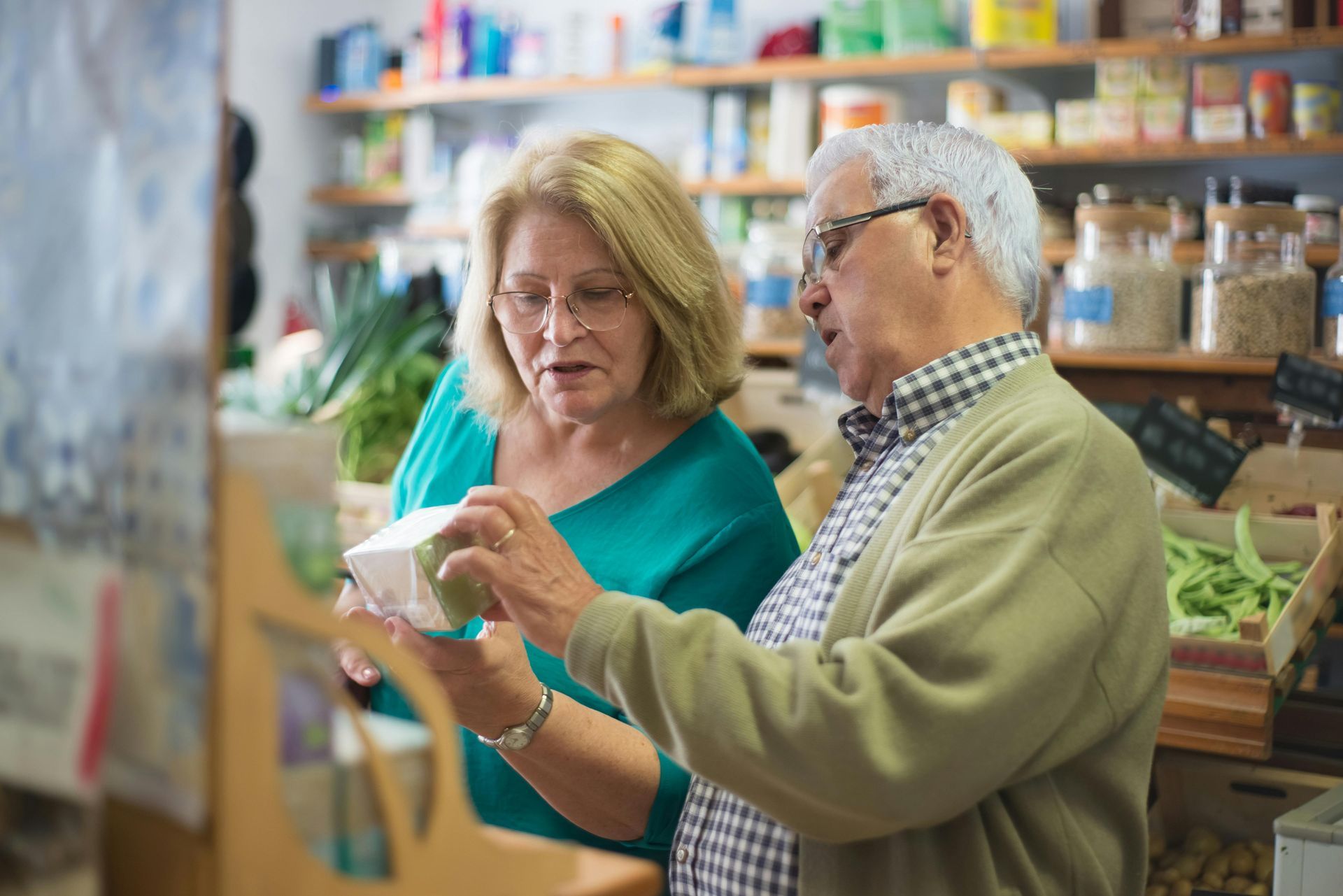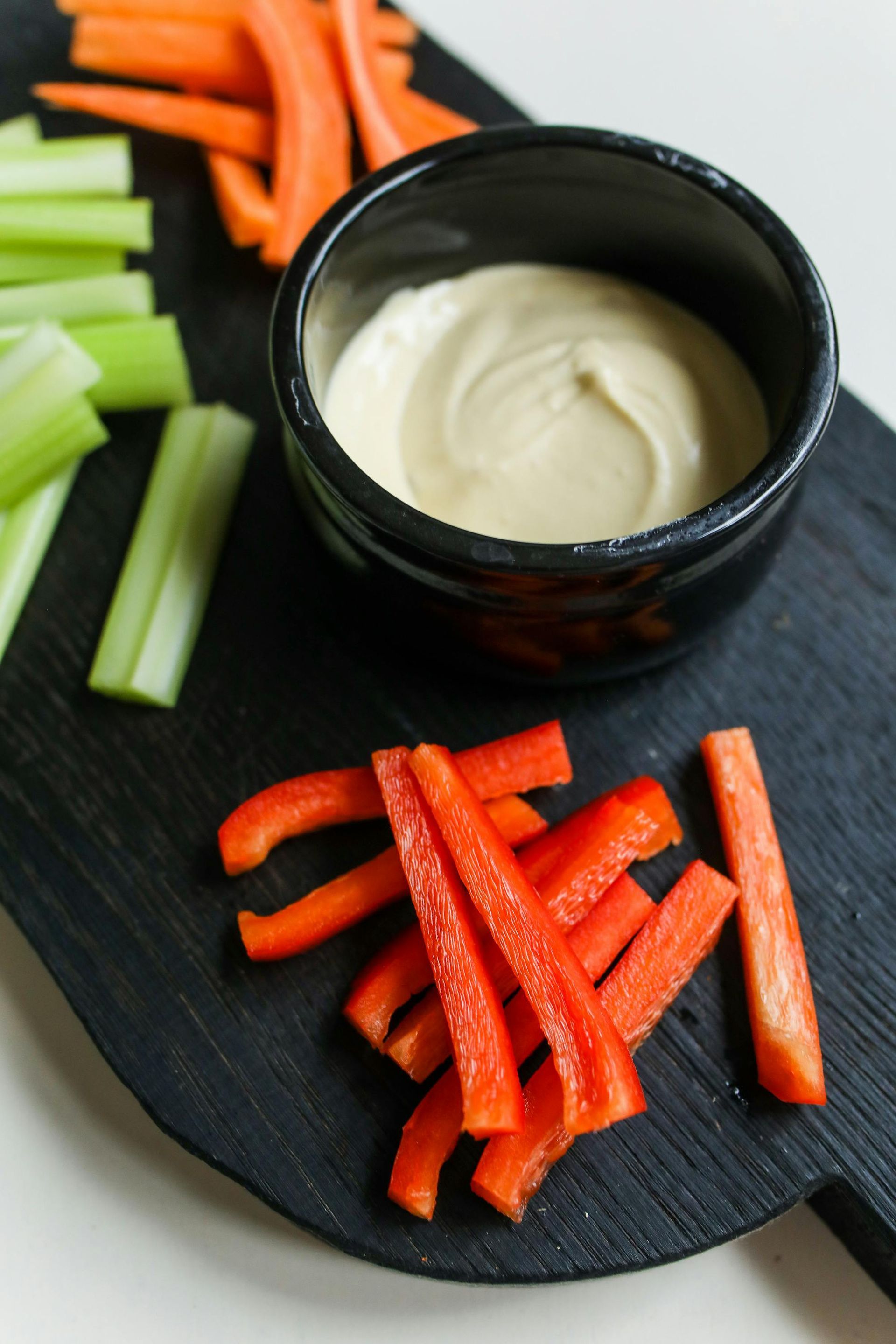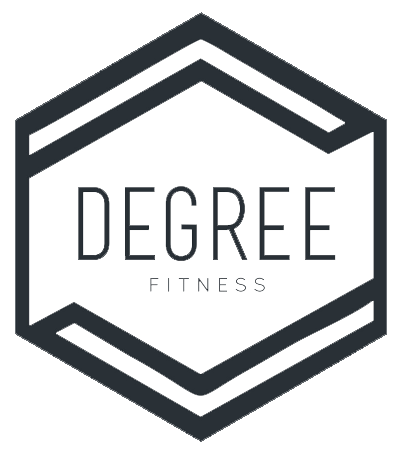I’m injured – what do I do?!
October 30, 2019
Written By: Kelly Miller
Have you ever slipped on the ice and tweaked your knee? Have you ever picked something up to only tweak your back? Maybe you over stretched a hamstring at hockey… Now what?
Injuries happen, we’re not as invincible as we think (dang, it!) so, the question becomes: how do I maintain my fitness regime and stay active during the healing process?
At Degree, we work with people from all walks of the earth, some of these people have chronic injuries, or, have experienced an acute injury in the past, where now there is always this lingering fear of “what if I push to hard?” “What if it happens again?”
Our emotions and thought processes and ego can help us, but they can also start to hold us back.
Here are my top 3 tips for dealing with an injury and how to not let is stop you:
1) Tell your Coach! Tweaked your knee at broom-ball last night? We want to know! By telling us we can give you alternative options that will not aggravate your knee, and allow you to still get a kick-butt workout. We can also chat with you about how you’re feeling emotionally about this – sometimes these events can really get to us!
2) If it is an acute injury, and things are still really sore, take a day, or two or three of rest. It’s OK to take some time off if things are really, really sore. Then, it will be important to communicate with your Coach upon heading back to your 1-1 sessions, or classes to ensure we’re giving appropriate scaling options to get you moving again, pain free!This is an important tie to focus on eating nutrient dense foods, and drinking lots of water – good nutrition and hydration are keys to faster healing! Our Registered Dietitian can help if you’re feeling stuck – click here to email her !
3) Understand the old saying “if there is a will, there is a way”. By being open to modifying your workouts for a while, you’ll open yourself up to a faster healing process, a decreased risk of re-injury, and the ability to really dial in sound movement patterns.Injuries, whether chronic or acute, can wreak havoc on our self esteem. Sometimes we feel as if there is something wrong with us, maybe we feel ‘stupid’ because things just aren’t healing as fast, or, we feel like we’ve exhausted all avenues.
You are not alone. You are not broken, and there is nothing wrong with you.
In a day and age where we’re almost expected, without fault, to have it all together, it can be tough to say “hey, I just need to slow down for a little bit”. Your Coaches have your back, and we’ll do whatever it takes to help you re-ignite that inner fire, and get you moving.
We’re lucky in Seaforth in the surrounding area to also have access to many, many awesome resources! We will work with other health professionals in the area to ensure sound treatment and sound training for those we serve. Here are a few awesome organizations we have worked with before!
Check out our friend, Jason Church of Jason Church Osteopathy , for one! We work together with clients whom are receiving treatments from his professional service, as well as coming to their regular personal training sessions or group classes. Team work makes the dream work, and in this case, allows individuals to continue to live the life they want, and do all of the awesome things they can! Movement is medicine and man, does it ever feel good. Let’s do it!
Your Coach,
Kelly
Ready to get started at Degree? Email kellymiller@degreecrossfitseaforth.com or visit www.degreecrossfitseaforth.com/get-started
Injuries happen, we’re not as invincible as we think (dang, it!) so, the question becomes: how do I maintain my fitness regime and stay active during the healing process?
At Degree, we work with people from all walks of the earth, some of these people have chronic injuries, or, have experienced an acute injury in the past, where now there is always this lingering fear of “what if I push to hard?” “What if it happens again?”
Our emotions and thought processes and ego can help us, but they can also start to hold us back.
Here are my top 3 tips for dealing with an injury and how to not let is stop you:
1) Tell your Coach! Tweaked your knee at broom-ball last night? We want to know! By telling us we can give you alternative options that will not aggravate your knee, and allow you to still get a kick-butt workout. We can also chat with you about how you’re feeling emotionally about this – sometimes these events can really get to us!
2) If it is an acute injury, and things are still really sore, take a day, or two or three of rest. It’s OK to take some time off if things are really, really sore. Then, it will be important to communicate with your Coach upon heading back to your 1-1 sessions, or classes to ensure we’re giving appropriate scaling options to get you moving again, pain free!This is an important tie to focus on eating nutrient dense foods, and drinking lots of water – good nutrition and hydration are keys to faster healing! Our Registered Dietitian can help if you’re feeling stuck – click here to email her !
3) Understand the old saying “if there is a will, there is a way”. By being open to modifying your workouts for a while, you’ll open yourself up to a faster healing process, a decreased risk of re-injury, and the ability to really dial in sound movement patterns.Injuries, whether chronic or acute, can wreak havoc on our self esteem. Sometimes we feel as if there is something wrong with us, maybe we feel ‘stupid’ because things just aren’t healing as fast, or, we feel like we’ve exhausted all avenues.
You are not alone. You are not broken, and there is nothing wrong with you.
In a day and age where we’re almost expected, without fault, to have it all together, it can be tough to say “hey, I just need to slow down for a little bit”. Your Coaches have your back, and we’ll do whatever it takes to help you re-ignite that inner fire, and get you moving.
We’re lucky in Seaforth in the surrounding area to also have access to many, many awesome resources! We will work with other health professionals in the area to ensure sound treatment and sound training for those we serve. Here are a few awesome organizations we have worked with before!
Check out our friend, Jason Church of Jason Church Osteopathy , for one! We work together with clients whom are receiving treatments from his professional service, as well as coming to their regular personal training sessions or group classes. Team work makes the dream work, and in this case, allows individuals to continue to live the life they want, and do all of the awesome things they can! Movement is medicine and man, does it ever feel good. Let’s do it!
Your Coach,
Kelly
Ready to get started at Degree? Email kellymiller@degreecrossfitseaforth.com or visit www.degreecrossfitseaforth.com/get-started

Written By: Mairead, Registered Dietitian Nutrition labels can be confusing! But they're on packaging to help you know more about your food so you can make choices that align with your health and fitness goals. Grab your nearest food label. On the black and white Nutrition Facts table, you'll see a list of nutrients with values beside them. For most of them, there will be an amount in grams or milligrams listed on the left and a percentage over on the right hand side. That percentage can help give us context! As you'll see listed in teeny writing at the bottom of the table, 5% is a little, 15% is a lot. This means that if there's a nutrient we want more of, like fibre, we want that percentage to be higher, ideally towards 15% or more. If there's a nutrient we want less of, we want it to be closer to 5%. For most normal healthy people, we want to have less sodium (salt), sugar, and saturated fat, while including more fibre. There may also be times when you want to focus on a specific vitamin or mineral, like iron or calcium. These are also listed with a percentage and can be used the same way. A key part of label reading is knowing what is most important for you. For many food categories, you can't prioritize everything. There may not be one product that is the lowest in saturated fat AND the lowest in sodium AND the highest in fibre AND has the most protein AND has the most iron ... the list could go on. But if you can narrow it down to a couple things that matter most for your health and fitness goals, you can start making choices based on food labels, without all the overwhelm. Check out your food labels, use the percentages, and make choices that fit with your goals! Looking for more personalized nutrition advice? Let's chat! Email mairead@degreefitnessseaforth.com for more information about our Nutrition Programs, or click HERE to book your FREE Bite-Sized Nutrition Chat!

Written By: Mairead, Registered Dietitian Snacking causes a lot of worry for many people! Is snacking bad? When should we be snacking? What's the best snack? Snacking itself isn't a bad habit, unless it's not aligned with your health and fitness goals. Snacks can actually do a lot of good to keep our energy levels up throughout the day and help meet our nutrition needs. Let's check out four ways you can improve your snacking habits! 1. Think about why! If you're concerned about whether your snacks are a problem, it's worth thinking about why you're snacking. Are you hungry between meals? Do you need some fuel before or after a workout? Are you bored at work in the afternoon or need a pick-me-up? Do you need something to do with your hands while watching tv? Are you starving at the end of the day when you get home before you have a chance to make dinner? Snacks serve lots of purposes, from keeping our energy stable during the day, to meeting emotional needs. If you don't feel good about why you're snacking, it might be time to find some other way to meet that need. 2. Plan for your snacks! Often, we may know we need a snack, but not be able to make a healthy choice about it because we're too busy or just too hungry. A little planning goes a long way! Planning ahead for these times can help us make choices that align with our goals, and have something at the ready before we're too hungry to make that healthy choice. Pack a snack or have one at the ready during the times of day or situations when you know you'll need it. 3. Make them satisfying! If a snack isn't satisfying, we'll be reaching for something else soon. For longer lasting energy, choose snacks that have a combination of protein and carbs. This might include yogurt with berries, a higher protein granola bar, crackers and veggies with hummus, or even a couple handfuls of trail mix. If you find yourself finishing your snack without even noticing what you've eaten, try taking a minute to eat more mindfully and focus on your food. This will help you feel more satisfied with it! 4. Fill your nutrition gaps! Snacks are another opportunity to add nutrition to your day. Are there specific foods you're trying to add more of to your diet? Are there nutrients you feel you may be lacking? Use snacks as a way to add these in. If you're concerned about protein, try adding canned tuna, hardboiled eggs, or Greek yogurt to your snacks. If you feel you're lacking vegetables or fruit, include at least one in your snack. If you're trying to include more plant-based proteins, lean on bean-based dips or try roasted chickpeas. The options are endless! Remember, snacking isn't good or bad, and can serve a lot of different purposes. Try using these tips to help your snacking align better with your health and fitness goals! Looking for more personalized nutrition advice? Let's chat! Email mairead@degreefitnessseaforth.com for more information about our Nutrition Programs, or click HERE to book your FREE Bite-Sized Nutrition Chat!

Written By: Mairead, Registered Dietitian As a Dietitian, I work with a lot of different people. One common thread is that we talk about excuses. So many people come in to a nutrition consultation and tell me about their challenges with nutrition and fitness, and then follow it up by saying something along the lines of "I know these are just excuses, I can do better". The things we often consider excuses can include having a busy job and a busy family life. Working weird hours. Struggling with the cost of groceries. Caring for loved ones. Managing health concerns, chronic diseases, or injuries. The list goes on. For my nutrition clients, I rarely consider any of these things to be excuses. It's not an excuse that you can't eat well because you work long hours and then take your kids to their sports practices - these are very real reasons why you're struggling to make healthy choices. It's not an excuse if you work nights and need to get some sleep so you didn't make it to the gym - it's as aspect of your life that makes getting enough exercise challenging. Think about the things you might consider to be your excuses for not "doing better" with your health and fitness. Are they really just parts of your life or the season you're currently in? None of these things should be making you feel bad or like you're making excuses. But on the flip side, these reasons also don't mean we need to throw in the towel on our goals entirely. They mean we might need to get a bit creative, decide what's really important to us right now, and ask for help when we need it! Instead of feeling bad about your "excuses" that aren't really excuses, it might be time to find some new ideas. Working with a Dietitian can be a great way to figure out what's actually important in your health and fitness goals, and come up with some new ideas to get you there. There are always steps we can take in the right direction to move past those "excuses" and work together for a happier and healthier you! Looking for more personalized nutrition advice? Let's chat! Email mairead@degreefitnessseaforth.com for more information about our Nutrition Programs, or click HERE to book your FREE Bite-Sized Nutrition Chat!
